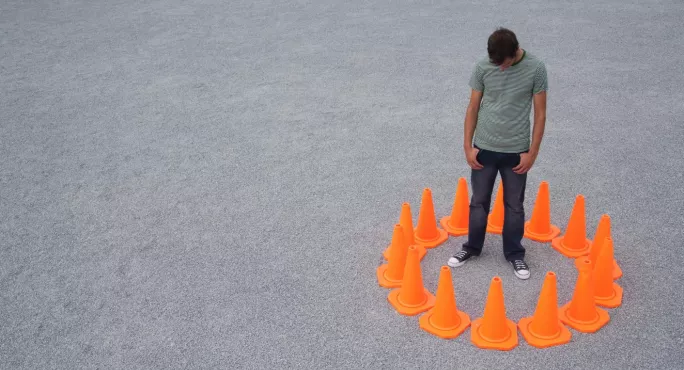‘Teachers and students boxed in by assessment rules’

For several weeks we have heard those in positions of power and responsibility repeating the assertion that the Scottish Qualifications Authority (SQA) provisional grades are based on “teacher judgement”. The implication is that we are operating in a world where teachers check a few pieces of work and make up a grade for their students, based on their holistic opinion. Presumably the next step in this imaginary world is that school administrators and leadership teams just pop these grades into a spreadsheet and off they go to the SQA.
Not only would that be unprofessional (and it is untrue) but it would also seriously undermine the credibility of the SQA awards for three year groups of young people. To say that all of the work that schools are carrying out to ensure fairness and credibility can simply be described as “teacher judgement” is disrespectful and simply disingenuous.
WATCH: Nicola Sturgeon insists teachers’ judgement is key
A student’s view: If these aren’t exams, why have we got exam stress?
Children’s commissioner: ‘There’s still time to do right by young people on assessment’
SQA assessment: Exam details shared on another social media platform
A teacher’s view: How to avoid a repeat of the 2020 results debacle
Here, below, is some of the SQA advice that outlines just how many conditions must be met for provisional grades to be of the required quality, and how many steps must be taken to get there.
The burden of this year’s SQA assessment system
The three overarching conditions that begin to define what “teacher judgement” really means are:
- Assessments have to be “valid” and “reliable”, as SQA guidance puts it. These are technical terms with linked professional responsibilities on schools; in short, schools have to measure certain prescribed things and this has to be replicable across large numbers.
- Assessments have to be “summative” and based on “demonstrated evidence”. Grades must be based on planned assessments, not diagnostic tests or formative assessments designed to provide improvement feedback to students; they must not be based on “inferred attainment”, SQA guidance makes clear. Demonstrated evidence means that we cannot extrapolate an overall grade based on teachers’ intuition or assessments that only cover a small part of the course.
- Assessments have to be administered under “supervised conditions”, SQA guidance says. This means that work and assessments completed at home or without a teacher present is highly unlikely to be accepted.
All of the above has to be done in a matter of weeks.
Teachers across Scotland have been boxed into a very trying scenario. It might even be described as an impossible, internally contradictory set of expectations. The people who constructed these temporary rules - advisors, administrators and politicians - have not had an easy job. But what they must not do now is blame teachers for following those rules.
The assumption made before Christmas was that schools would have a plethora of assessment evidence on which to base their grades. This turned out to be incorrect, given the lengthy lockdown that followed, but Plan B did not materialise. Students did not return to school for assessment purposes until after Easter; hence the pressure that they and their teachers have been under to generate enough quality evidence to form provisional grades.
The assessment and moderation system schools have devised will be checked by national bodies to make sure we have adhered to their rules. If they find anomalies and non-adherence, they may accuse teachers, or students, of malpractice, thus jeopardising the very awards that our students deserve.
Young people are feeling the pressure because they, too, have been boxed in. Their subject teachers are doing their best to support them through this, as are colleagues in guidance and pupil support. We in the education system must collectively ensure they are not disadvantaged by their experiences during this year of Covid restrictions. Their grades must reflect what they are capable of, not the barriers they have faced this year. That will require a combination of courage and professional integrity, not to mention a great deal of hard high-quality work between now and the end of term.
If that is what is meant by “teacher judgement”, then so be it - but let’s be honest about what’s involved.
The writer is a secondary school headteacher in Scotland
You need a Tes subscription to read this article
Subscribe now to read this article and get other subscriber-only content:
- Unlimited access to all Tes magazine content
- Exclusive subscriber-only stories
- Award-winning email newsletters
Already a subscriber? Log in
You need a subscription to read this article
Subscribe now to read this article and get other subscriber-only content, including:
- Unlimited access to all Tes magazine content
- Exclusive subscriber-only stories
- Award-winning email newsletters
topics in this article



